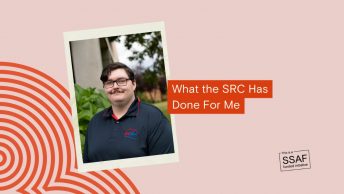This post is over three years old, the information may be outdated.
In recent weeks, our lives have been directed by updates on COVID-19 transmission and restrictions in our communities. And although we pay much attention to NSW Premier, Gladys Berejiklian, there is an extensive and multidisciplinary team working alongside her – general practitioners, practice and community nurses, allied health professionals, specialists, and educators, to name a few.
Sure, we may not be working on a national level, but teamwork has real value. You may know it as assessment group work, shift work and projects, but working in a team environment is everywhere. And working well in teams doesn’t just happen either.
From little things big things grow
According to Charles Sturt’s Careers and Skills Hub, teamwork is defined by a shared commitment, both to the team’s process and to its product.
Idealistically, teamwork should fall into three key elements. Firstly, the need to be three or more people. Next is that the group is working interdependently so that their individual success is dependent on others as well as their own ability. And finally, the existence of a common goal or mission of which all members are working towards.

The Careers and Skills Hub isn’t out to confuse you! They too understand the complexities of teamwork, like coordination challenges. You may recognise this as the time it takes to coordinate schedules, arrange meetings, correspond, and make collective decisions that you wouldn’t have to consider when it comes to working individually.
Another challenge experienced by many groups is motivation. In turn, a group’s productivity may be skewed by one or more phenomena such as free riding, social loafing, or conflict.
There are also intellectual challenges. For you, this may be in the form of reduced creativity and the tendency of group members to believe their thoughts, attitudes and reasons are more obvious to others than actually the case.
Who are you?
The challenges listed above – although not always avoidable – can be improved. The Careers and Skills Hub suggests you identify your personal strengths and weaknesses. Do they suit a particular role required for effective teamwork and if so, which one?
There’s the action-oriented role. These people tend to drive the rest of the team to action, turning ideas into practical tasks and ensuring these are completed.
During group work, do you typically focus on bringing the team together, ensuring mutual engagement? Then, you would fit a people-oriented role.
And finally, there’s the thought-oriented roles which seek to bring ideas, knowledge, analytical thinking and creativity to the team.
Now work it!
With an understanding of what kind of groupwork based role best suits you, allow yourself the time to develop those skills. This can range from:

- Communication
- Active listening
- Managing Conflict
- Responsibility
- Support / Collaboration
- Openness and Trust
… To name a few.
You may not even notice, but these skills have significance beyond the university-based assessment you may have to complete in the coming weeks. More than ever, teamwork is a workplace requirement. And as the legendary American businessmen and former Basketball player, Michael Jordan, once said; “Talent wins games, but teamwork and intelligence win championships.”
For more information and tips, register for a free workshop hosted by the Careers and Skills Hub.










